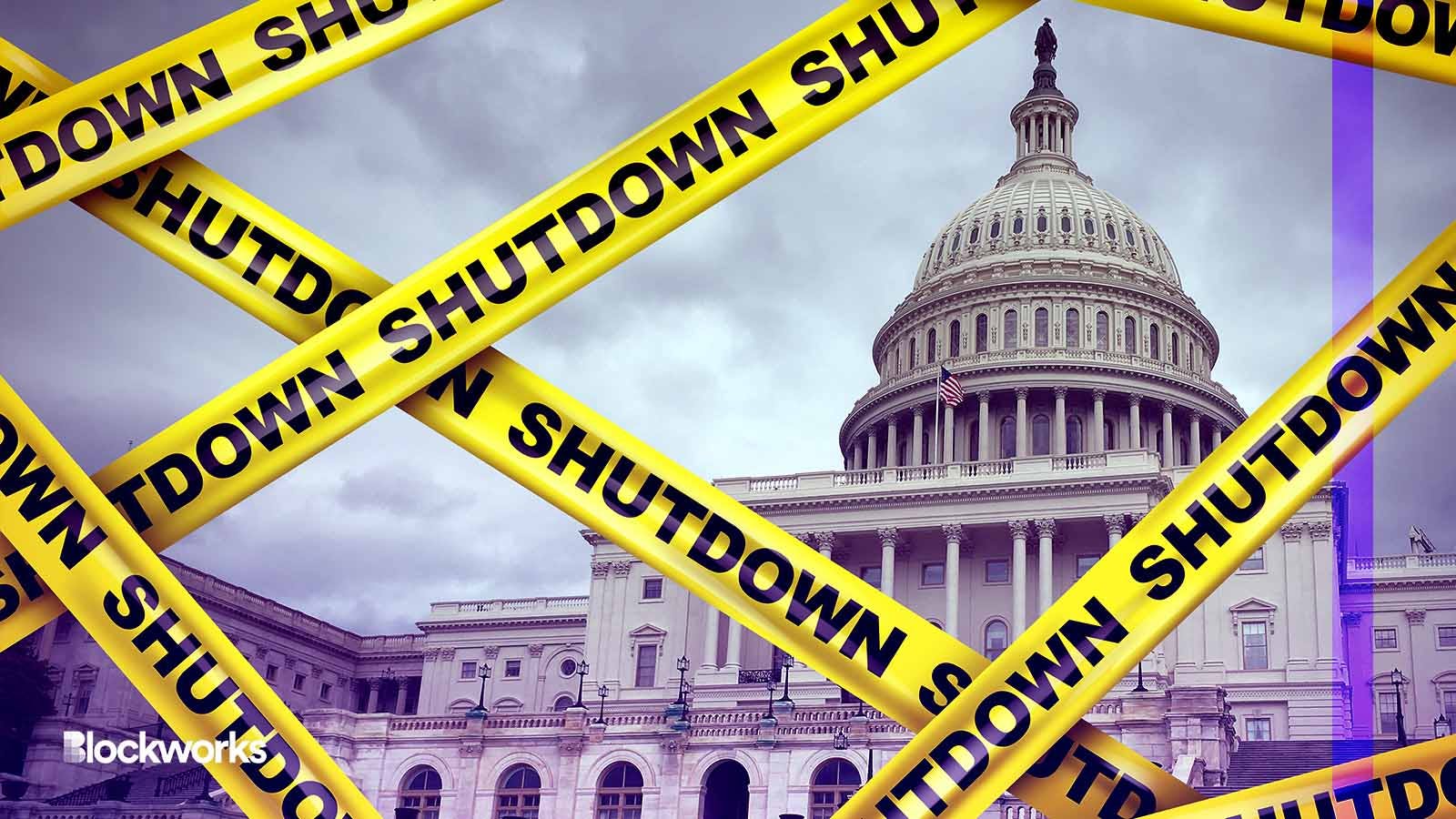Crypto industry braces for uncertainty as federal shutdown looms
A government shutdown is looking more likely by the hour. Here’s what the impact on crypto could be, should Congress fail to come to an agreement

Lightspring/Shutterstock modified by Blockworks
The federal government’s budget is set to expire over the weekend, and lawmakers appear no closer to passing legislation that will prevent a shutdown. If Congress doesn’t come to an agreement soon, it could spell trouble for the crypto industry.
The odds of a government shutdown increased Friday afternoon when the House failed to pass its last-ditch attempt to extend the federal budget past Saturday, with the bill losing in a vote of 198-232. The last government shutdown in 2018 lasted 35 days.
“A government shutdown could cost taxpayers $1 billion to $2 billion per day,” Rep. Blaine Luekemeyer, R-Mo., said.
A government shutdown stops non-essential federal work. A shutdown leaves most federal agencies, including the US Securities and Exchange Commission, with a limited, ‘essentials-only’ staff. Crypto industry members and legal minds are all but certain this limited staff means zero movement on any digital-asset related agenda matters.
“I seriously doubt any of these agencies are going to be able to carry out any meaningful regulatory action regarding crypto in the event of a government shutdown,” Brian Evans, the CEO and founder of digital asset venture capital firm BDE Ventures, said.
The SEC has already pushed its decision date for the Ark 21Shares Bitcoin ETF from Nov. 11 to Jan. 10. A shutdown could also result in paused litigation, SEC Chair Gary Gensler said, adding that his staff would be “skeletal.”
“The normal oversight we have on markets will not be possible,” Gensler said during an interview on Bloomberg Television last week.
But having the agency take a step back from crypto might not be the worst thing, Evans said.
“Given the extreme pressure applied by the SEC and other agencies on the crypto industry of late, a slowdown in such action resulting from a shutdown would be a welcome breather for crypto-industry participants,” Evans added.
Read more: Invesco, Galaxy float latest spot ether ETF proposal
A shutdown would also pause, or at the very least slow down, crypto legislation’s progress on Capitol Hill, political experts said. Several crypto-related bills have advanced through the markup period, but the odds of a floor vote during a shutdown are next to none.
Plus, a shutdown likely will shake up Congress’ priority list even after operations resume as normal, so crypto issues could face further delays.
What about pending legal matters?
Federal courts have said they are equipped to remain funded until Oct. 13, or about two weeks should a government shutdown last that long.
The US District Court for the Southern District of New York (SDNY), where Sam Bankman-Fried’s criminal trial is set to begin next week, confirmed with Blockworks that his trial will not stop even if the shutdown extends beyond October 13.
The court will continue operating as their employees will be deemed essential. However, there could be hold-ups with other departments like the Department of Justice and US Attorneys office, a representative from the SDNY said.
Jurors could also be financially impacted, the representative added. If the judiciary runs out of money, jurors’ pay would be delayed until a budget is approved. US district court jurors are paid $40 per day of service, plus reimbursements for travel costs.
Jury selection for Bankman-Fried’s trial is slated for Oct. 3. Should a government shut down occur before then, attorneys are likely to question potential jurors regarding their feelings about delayed payments during the screening process.
Sam Dibble, partner at Baker Botts, added that criminal trials are protected under the Constitution, and will continue through a shutdown. However, the pace of these trials could be slowed depending on which employees are classified as essential. Bankruptcy cases could be another story, however.
FTX, Celsius, BlockFi and Voyager are just some of the crypto companies engaged in bankruptcy proceedings.
Get the news in your inbox. Explore Blockworks newsletters:
- The Breakdown: Decoding crypto and the markets. Daily.
- 0xResearch: Alpha in your inbox. Think like an analyst.






